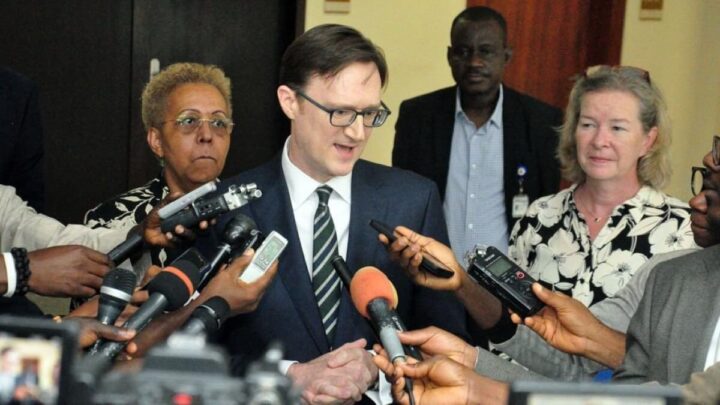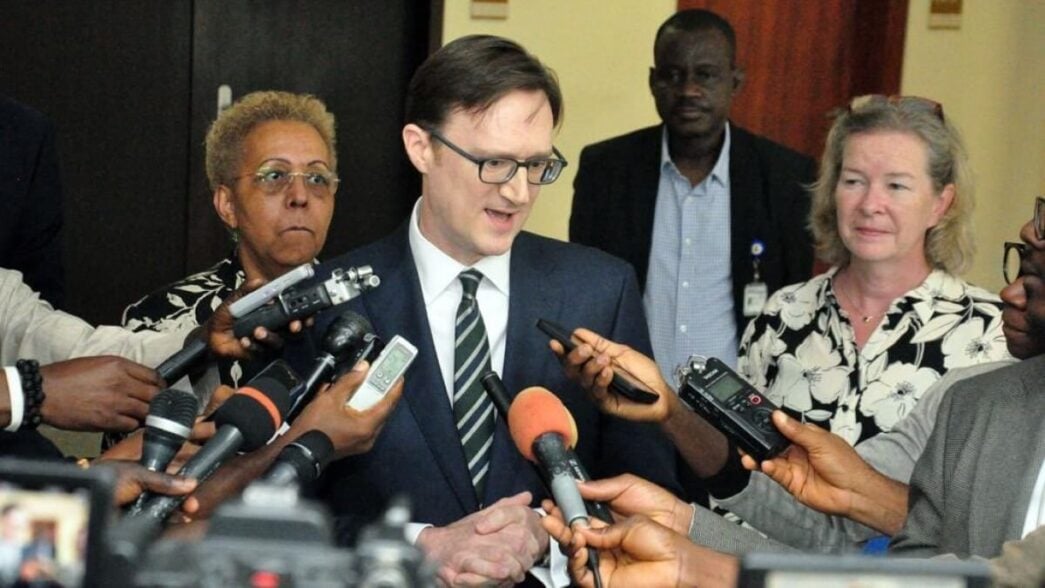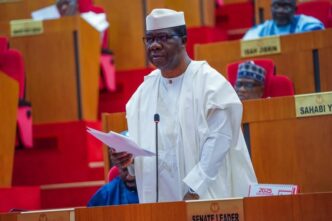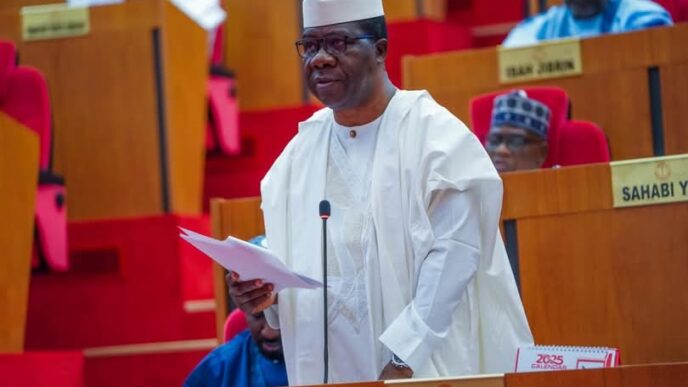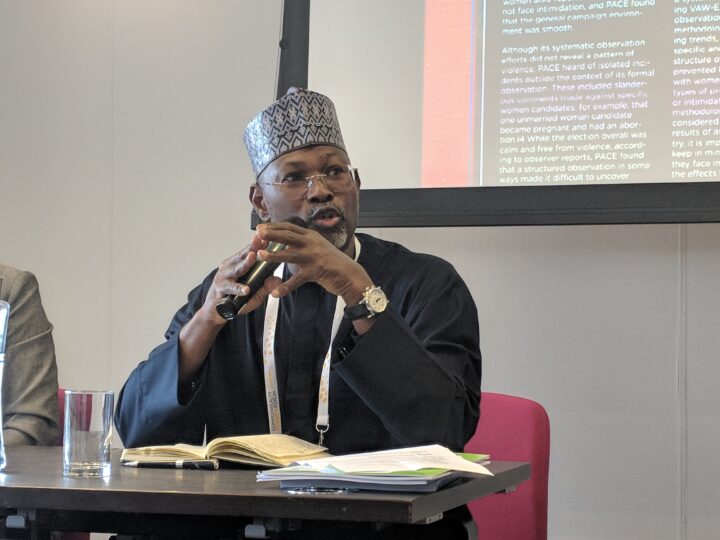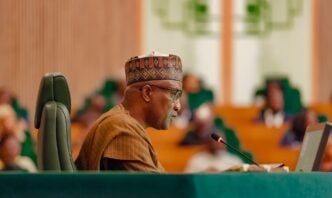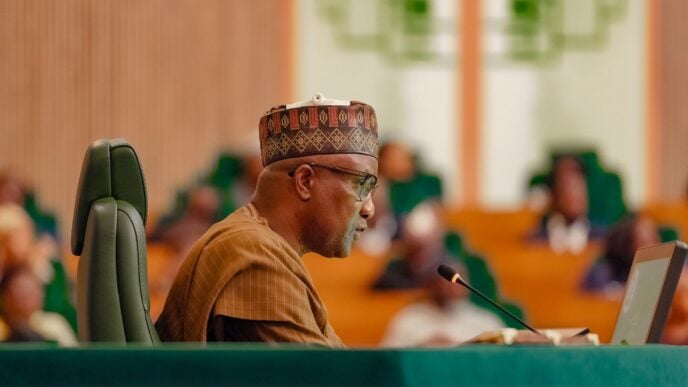Richard Montgomery, British high commissioner to Nigeria, taking questions from the press | File photo: Sun newspaper
The envoys of the US, UK, Finland, Norway, and Canada have asked Nigeria to reform the 2015 Cybercrimes Act.
In a joint statement issued on Wednesday to commemorate 26 years of democratic governance in Nigeria, the envoys said the law, originally designed to combat online fraud, is increasingly being misused by government officials to suppress dissent, silence critics, and stifle free speech.
They said the law’s vague provisions undermine democratic rights and economic growth — and could hinder investments.
The statement was signed by Richard M. Mills (US Embassy), Richard Montgomery (British High Commission), Sanna Selin (Embassy of Finland), Svein Baera (Embassy of Norway), and Pasquale Salvaggio (Canadian High Commission).
Advertisement
“The Act has laudable aims — to combat online fraud and cyberattacks. There is growing evidence, however, that the Act is being misused by some to silence criticism and dissent,” the statement reads.
The diplomats said Nigeria’s constitution guarantees freedom of expression and freedom from government control.
The cybercrimes act was amended in 2024 after media rights groups and journalists clamoured for a review.
Advertisement
In January, the Committee to Protect Journalists (CPJ) said the amendments, meant to protect journalists and curb misuse of the Act, have not achieved their intended purpose.
“Despite reforms to the country’s Cybercrimes Act in February 2024, it continues to be used to summon, intimidate, and detain journalists for their work,” the CPJ said.
Citing findings from the National Human Rights Commission (NHRC) and ECOWAS Court of Justice rulings, the envoys said the Act is too often weaponised against journalists, activists, bloggers, and ordinary citizens.
They pointed to the case of Dele Farotimi, a political commentator and author, who faced 12 counts of cybercrime after speaking against alleged judicial corruption.
Advertisement
“Farotimi is not alone. Journalists, activists, and ordinary citizens have faced similar charges for sharing opinions or reporting on alleged corruption,” the ambassadors said.
“This distortion of the law’s original intent can lead to citizens becoming hesitant to speak out, weakening democratic accountability and potentially fuelling distrust in government.
“Misuse of the Cybercrimes Act undermines democratic advancement and civic participation. It also jeopardises investors’ confidence and risks deterring the innovation needed for economic growth.
“The law’s broad scope allows it to be misused against Nigerian citizens seeking to express dissent, form opinions, or criticise influential people.
Advertisement
“Journalists, activists, and ordinary citizens have faced similar charges for sharing opinions or reporting on alleged corruption.”
‘THE ACT SHOULD BE PRECISE’
Advertisement
The diplomats specifically highlighted section 24 of the Act, saying it includes ambiguous terms like “cyberstalking,” “insult,” “harassment,” and “false information”.
“This distortion of the law’s original intent can lead to citizens becoming hesitant to speak out, weakening democratic accountability and fuelling distrust in government,” the envoys said.
Advertisement
“The implications extend beyond free expression. Nigeria’s economic future depends on its ability to innovate and attract investment in the digital age.
“However, the Cybercrimes Act’s misapplication, even in a small number of cases, risks distracting innovators and entrepreneurs the government wants to invest in Nigeria.
Advertisement
“Free expression is a precious commodity that relies on all of us to respect it. It is a fundamental tenet of Nigeria’s constitution.
“Nigerians, and any citizens of countries around the world, should be able to hold and express their views, even if those opinions are unpopular.
“The Cybercrimes Act also contributes to uncertainty abroad about Nigeria’s legal landscape.
“Its vague provisions make it difficult for businesses and investors to assess legal risks, hindering investment in industries that rely on digital content. Reform is needed to protect both citizens’ rights and Nigeria’s future.”
‘AMENDMENT IMPERATIVE’
The diplomats said as friends of Nigeria, who share the country’s strong commitment to democratic values, they want the nation to realise its potential as a democratic “digital powerhouse”.
They urged the Nigerian government to amend the Act to strike a balance between protecting citizens and preserving human rights.
The diplomats said through the Council of Europe’s Global Action on Cybercrime project, Nigerian lawmakers are receiving financial support and technical expertise to guide the ongoing review of the Act, with the goal of aligning it with international standards and best practices.
They expressed reservation that the deadline for the Act’s review has consistently been delayed, adding that the review should be prioritised and open to public consultation and debate.
